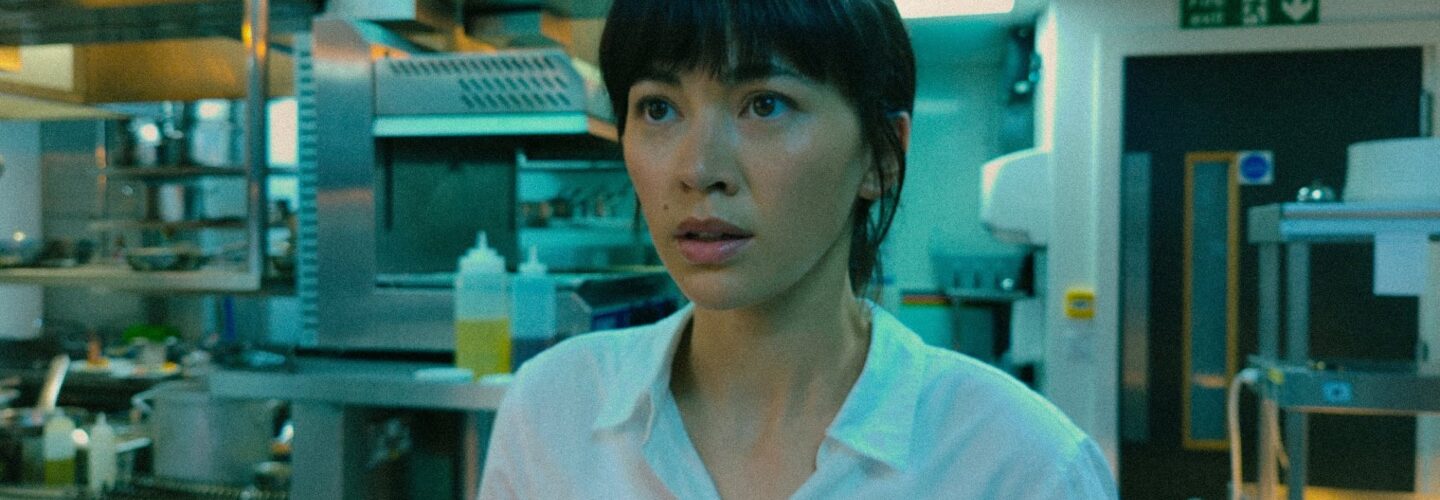
In her BAFTA nominated directorial debut Bus Girl, Jessica Yu-Li Henwick delicately draws on the parallels between the film world and that of fine dining. Bus Girl, filmed entirely on a Xiaomi Mi11 phone, tells the story of an aspiring young female chef as she navigates the cutthroat world of high end cooking and draws directly from Henwick’s nascent experiences in the film industry at the tender age of 16. The film’s rich, Wong Kar-wai inspired aesthetics act as another point of technical proof as to what’s possible when using a phone as your shooting camera – featuring sumptuous cinematography and an eye for detail viewers can visually dine out on. Ahead of next week’s BAFTA awards ceremony, we sat down with the actor/writer/director for a chat about her dissatisfaction with the roles available for women leading her to write and direct, how technology has opened up the door for so many new filmmakers from all walks of life and putting her short film directorial debut ahead of the opportunity to join the cast of Glass Onion: A Knives Out Mystery.
[The following interview is also available to watch at the end of this article.]
Bus Girl has come out at a time when we are revelling in food and kitchen based narratives, yet your film seems to be the only one to approach it from a female perspective which I love. How did you come to write this story?
It does feel like we’re going through a bit of a food trend but obviously, we made Bus Girl before any of those came out. It is fascinating seeing how we were a part of that culture, something that came to all of us at the same time. I have been writing and working in the industry since I was 16 and I had become quite disenchanted with our industry over the last eight years or so. Specifically over the roles available for women, especially women over a certain age or other ethnicities. Growing up in England I feel like there’s not that much diversity in terms of stories and the way women are represented in film has often been quite depressing. I always knew I wanted to be a part of the change and not just complain. That’s how I got into writing and directing because everyone who read my scripts always said that I had a very ‘directorial’ way of writing things, it was clear that I could see the thing in my head. That’s how I knew I wanted to try my hand at directing.
As an Asian director I think it’s a rite of passage to go through your Wong Kar-wai phase, I just love that romantic feel
Bus Girl came about very last minute, I was in LA filming and my producing partner came to me and said it’s time to make a short. All directors know you always say “No, I’m not ready yet or I need to wait for the right story”. The real answer is that there is no right time, there is no right story. You just have to do it and you will learn by doing it. I wanted to make something I could shoot in two or three days, very minimal in terms of locations, minimal in terms of crew. I’ve always been fascinated by food, it’s how my family communicates with one another, it’s how we show affection, it’s how we argue by burning the dinner. So, I wanted to pay homage to that part of my culture.
It’s all filmed on a Xiaomi Mi11 phone right?
Yes, Xiaomi is a huge phone company and they have some great cameras. When we were looking at how we were going to fund the film they came on board under the condition that we shot it entirely on the phone, no lenses or no attachments. Often when you see films shot on a phone they’ve got a massive lens that they’ve clamped to the phone and it requires technical knowledge. What I love about the idea of shooting on a phone is how accessible it is to everyone. You have the ability to make a film right in your pocket.

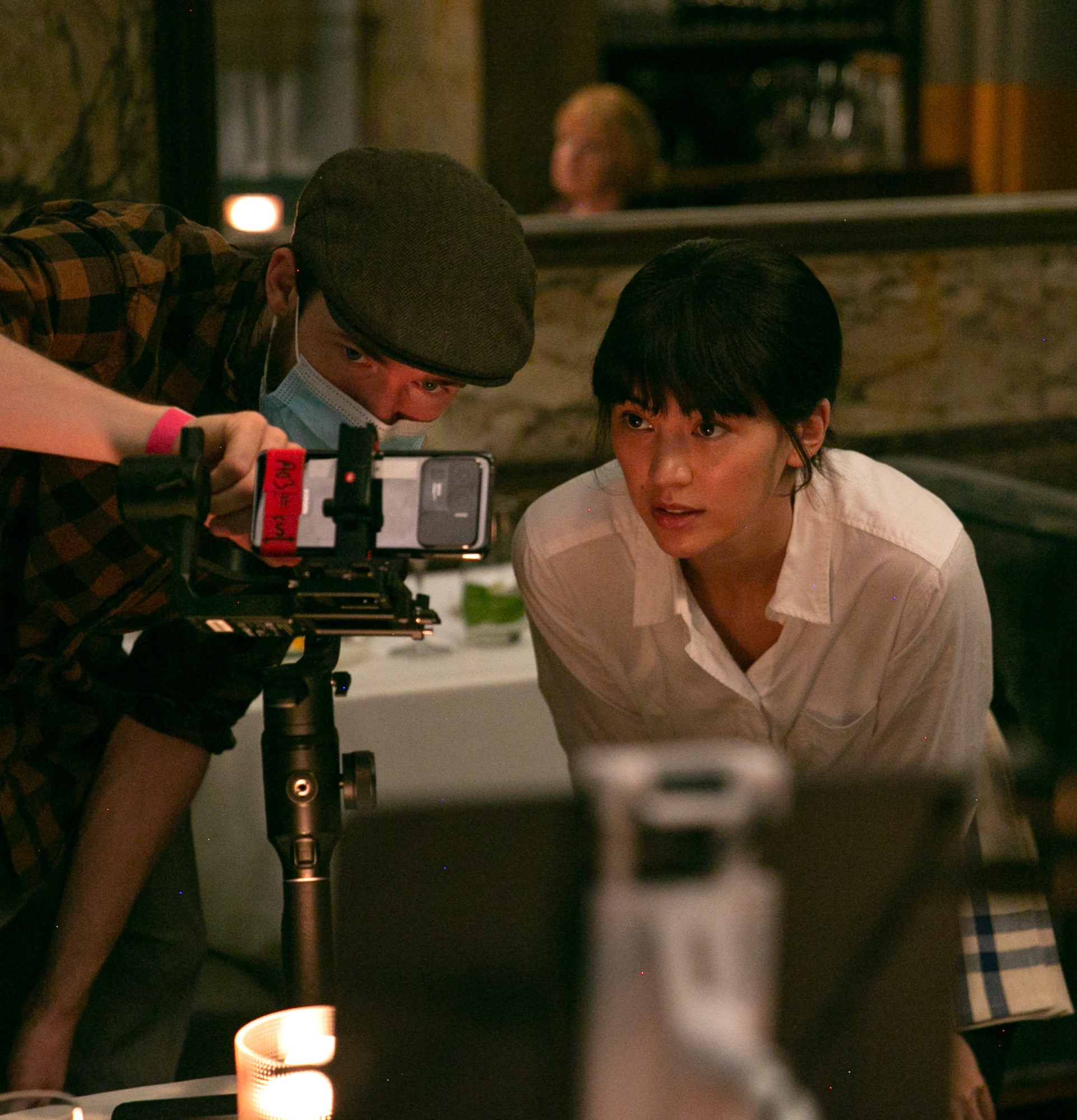

Were you intimidated by the prospect of filming everything on a phone?
At first I wasn’t, I think my crutch is that I have real impostor syndrome as a director because I never went to film school and I don’t have the technical knowledge. I have the pieces which I’ve learned from being on set and I’m very lucky I’ve learned from some of the best directors and DPS in the business but I just don’t have a qualification, I don’t have a certificate. So I thought let’s shoot it on a phone, that would be great. Then as I was crewing and trying to find DPs, I realised how many weren’t interested and warned me against it. Nick Cooke, who I really lucked out with, was the first DP who looked at it as a challenge rather than an obstacle.
What I love about the idea of shooting on a phone is how accessible it is to everyone. You have the ability to make a film right in your pocket.
I never tried to go to film school but I tried to go to drama school and I remember looking at the costs and reflecting on that being part of the problem, formal education is not accessible. That’s why we see so many films and performances we have seen before, another Eaton graduate because those are the only people getting through these golden gates into the industry. But now, with technology and with the internet it’s never been easier, which I love.
One of the elements that struck me is the romanticism in the cinematography. What influenced that look?
As an Asian director I think it’s a rite of passage to go through your Wong Kar-wai phase. I just love that romantic feel. I never thought we would achieve that to the degree that we did. I wanted it to look like we shot it on film. A lot of my reference points were from Wong Kar-wai films. I probably over prepared in terms of the minutiae of knowing exactly what I wanted in each shot, I pre-edited it. At the time I was filming Glass Onion and I had to do all my pre-production remotely. I flew into England and I knew I had a very short amount of time to make this film. I was there for a week and we shot for three days and then I flew right back to Serbia and continued post production remotely. I really over prepared knowing I couldn’t afford to go over a day. I couldn’t afford to mess up – it was really sink or swim.
How did you have to adapt your lighting to account for shooting with the phone?
Again, because of our time constraints, I said I wanted it 360° and all pre-lit. We handed over the set every day for an hour to Nick to make sure that we could do whatever we wanted without any downtime. The beauty and the advantage of shooting on a phone means it didn’t require a big rig, we just had a hand gimbal like a selfie stick. We didn’t need to lay down track and could move very quickly. We were passing through objects, in and out and so we had to pre-light but we also had to make sure that it wasn’t obvious because it could have been caught at any moment. After doing some camera tests, we realised the phone really didn’t do well in darkness and we were going to have to overlight everything and bring it down in the grade.
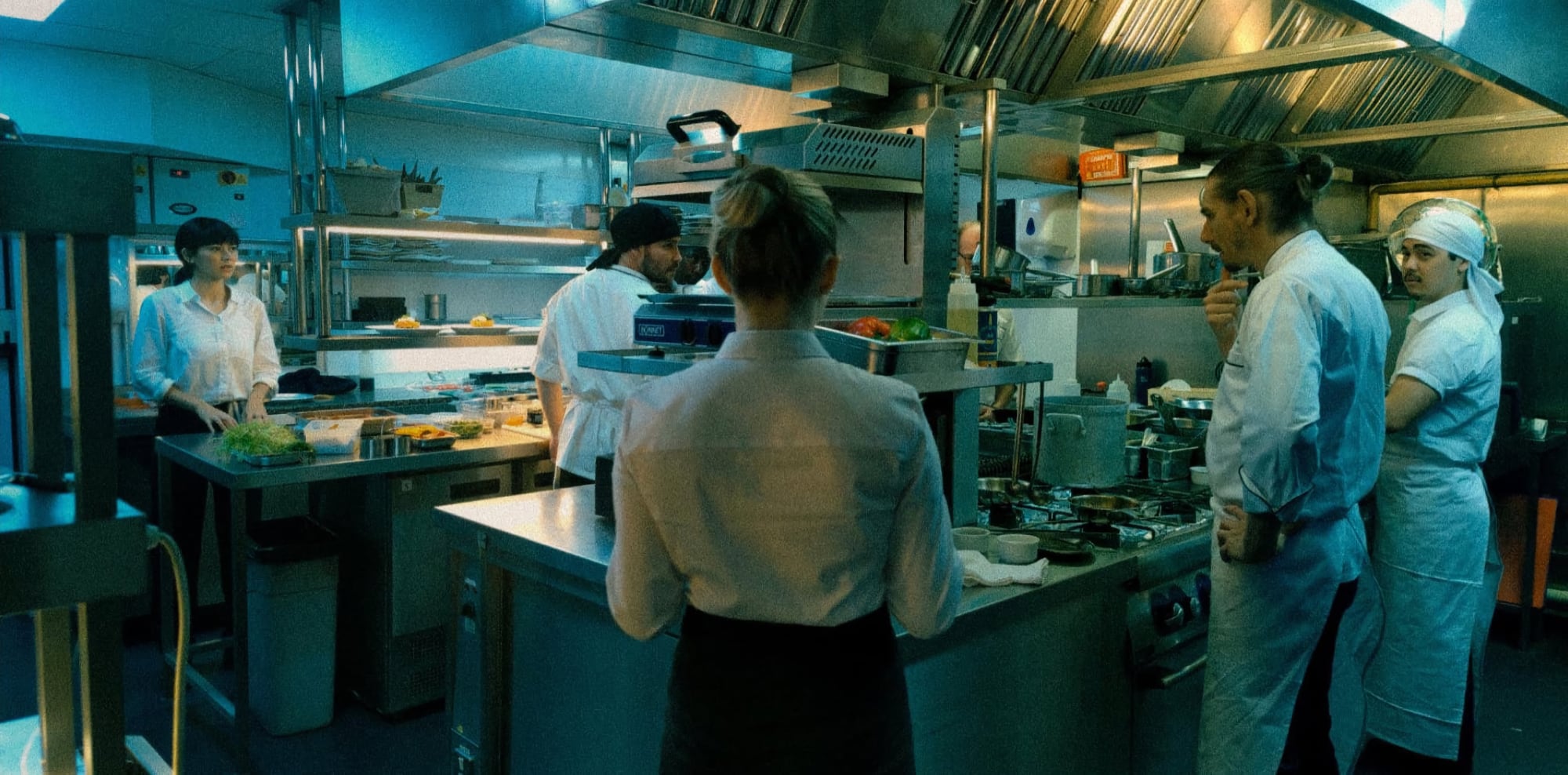
As you filmed this you were recording Glass Onion not to mention being the writer, director and actor in Bus Girl, how do you balance everything?
I planned the short film before landing Glass Onion. When we were in our contract stage and they offered me the role I said, “I know this is gonna sound crazy, but I have this short film and I’m not going to back out.” They replied, “You’re willing to lose this $200 million franchise to go make a short film?”, to which I replied “100%” so we carved it out. I almost lost the job trying to do that!
The acting was actually unintentional as I had cast another mixed-race actress who was on hold for a Netflix project. The film dates never clashed but, because of Covid, they turned around and said, even though she’s not filming on those days, we’re just going to pay her to stay home because we’re too afraid that she’ll come and get Covid on your job. No one got ill on our job, we were very safe but we did lose our actor and the funding was gonna fall through. I was so worried as I had carved out this schedule and I was so passionate about making it the only way forward was to do it myself.
I think that the only way to succeed as an actor/director is either having a first or a producer who is basically co-directing it or you have to be really good at compartmentalization which is what I did.
It was definitely hard on set, we had a girl to stand in for me as I was with Nick discussing the shot. Then I would go in and act it and then I’d come back out and I’d have to give everyone direction and then give myself acting notes. I think that the only way to succeed as an actor/director is either having a first or a producer who is basically co-directing it or you have to be really good at compartmentalization which is what I did. When I was watching playback it’s crazy but something switched and it felt like I was watching someone else. I never got self-conscious or had any of those issues that I normally have on a set.
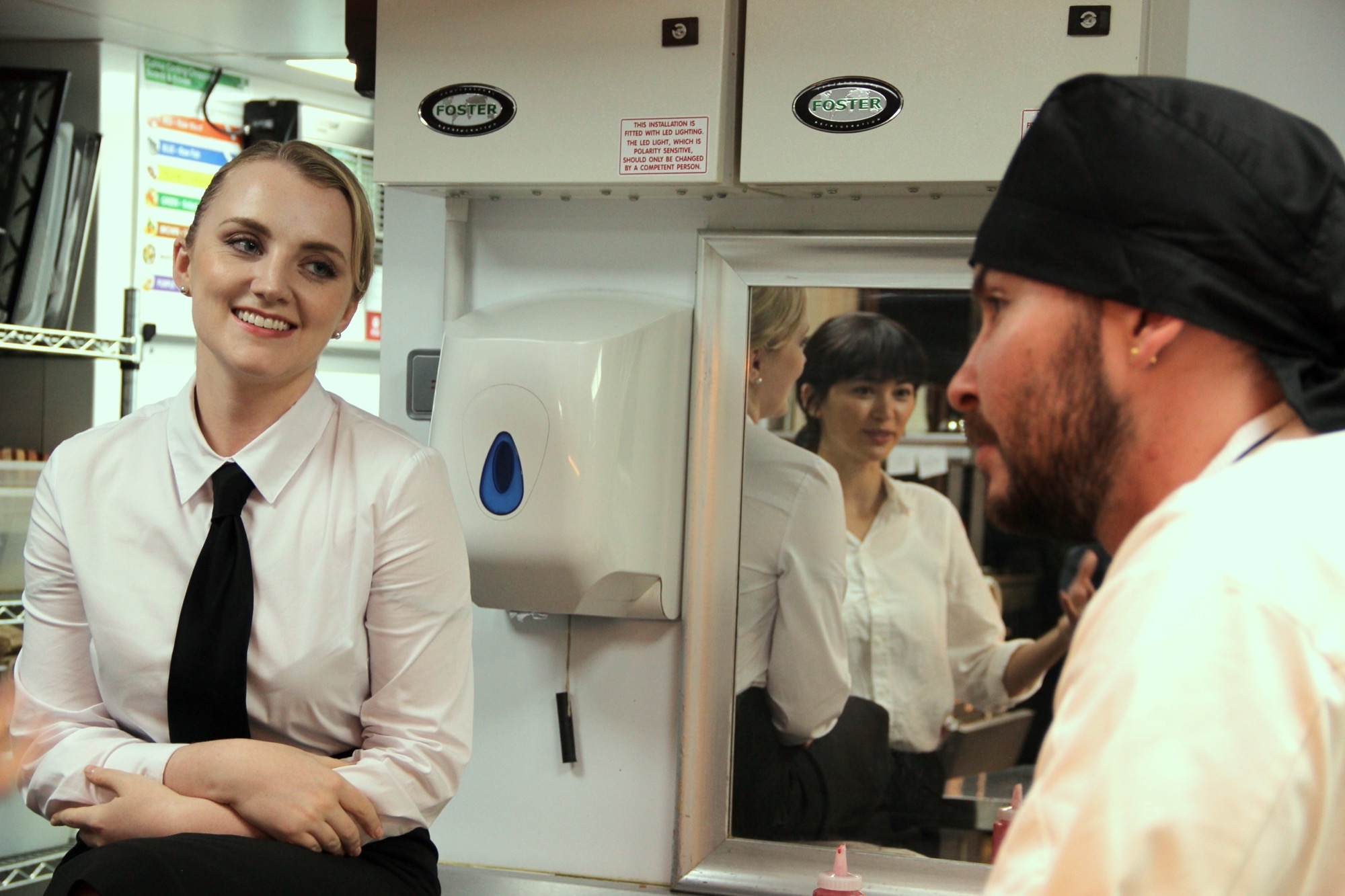
There’s a line in the film which really stuck with me, “It takes work to make something so beautiful, it takes love.” I love that line because I read it as also referring to the process of filmmaking.
Yes, that was on purpose. The experience of working in the industry has so many parallels to working in the food industry. Both are about providing an experience. Our audiences come into a dark cinema to watch a film that they know is make believe. Diners walk into darkened restaurants and sit down and eat food with this calming, relaxing jazz knowing that 30 feet away, the head chef is sweating buckets and someone’s accidentally set the souffle on fire and they’re yelling at each other and a busboy is crying into his tea towel. But, It doesn’t matter because we’ve come for an experience and we love to be whisked away from our life for an hour or two.
This film is a thinly veiled version of what it felt like on my first day on the job when I was 16. People were saying my name wrong and I didn’t know where to stand and I felt like I was in everyone’s way but there was something so incredibly magical about it. That sense of knowing my entire life is in front of me and anything is possible, that’s what I love about film, the magic and the hope. I really wanted to capture that feeling of possibility, even through the way I shot London. We watch a lot of productions which show the grittier, darker, more real side of London. The crime and dirty rainy skies but I wanted to capture that feeling that the city is what you make of it which is really how it felt to me when I first moved there.
This film is a thinly veiled version of what it felt like on my first day on the job when I was 16.
What about your BAFTA nomination, how does that feel?
Surreal, it wasn’t even on my radar and I didn’t know that we were in the running. I didn’t watch it live and I only found out because I got a congratulations text! When they first announced the longlist, I looked it up and they didn’t say anyone’s name so I was frantically Googling to see if there was another short called Bus Girl because there was no way it was ours. When I started I bought a seat at the Children’s BAFTAs in 2009 or 2010 and to go back as an adult, to be invited and not having to pay is so incredible. I’ve been on films as an actor which have very luckily had incredible runs and done wonderful award tours but when I saw that it was us and that we were nominated, I was so emotional and it affected me so much more than any other project that I’ve ever had. It was very emotional.
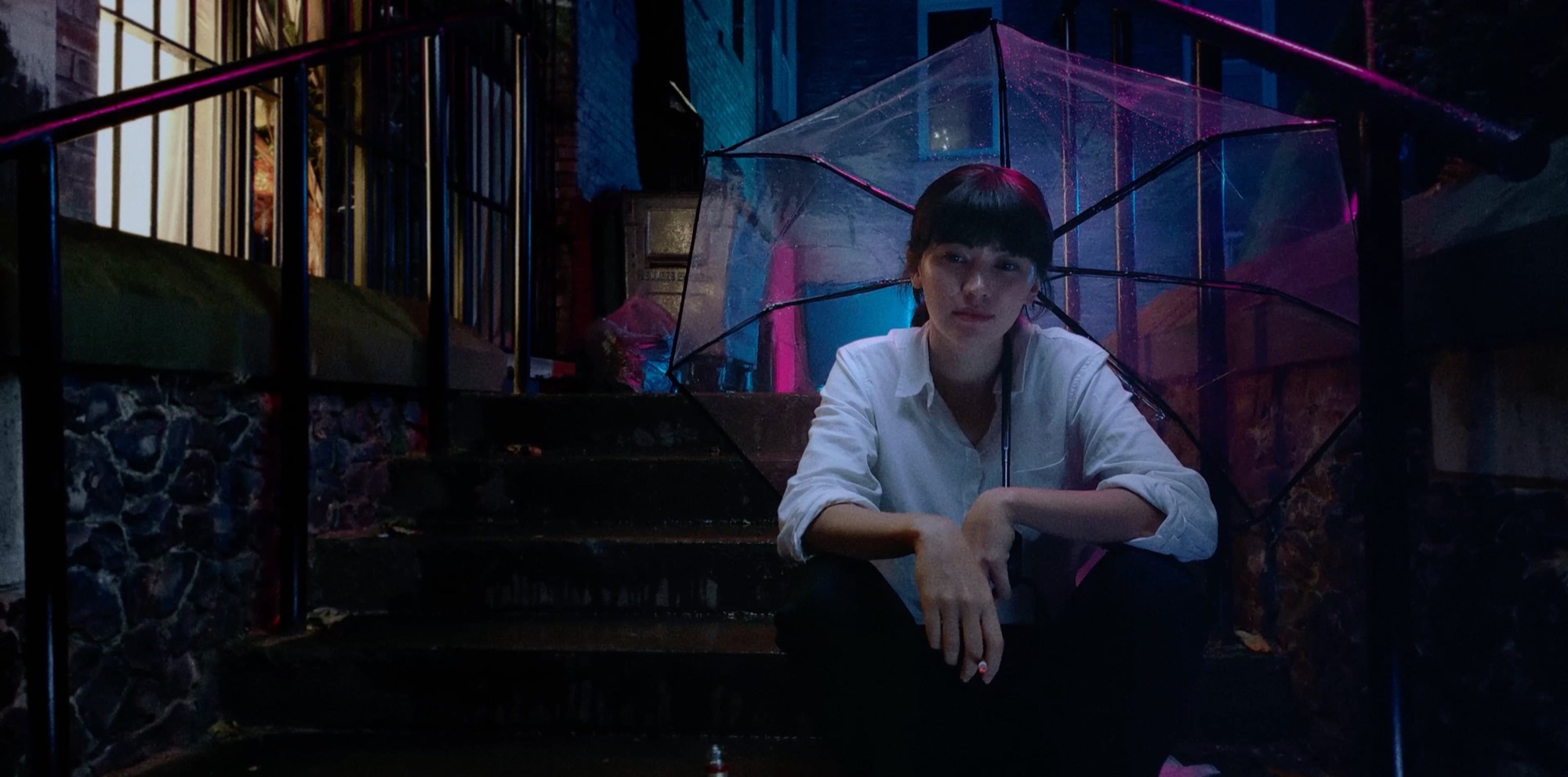
I read that you’re working on your second short Sandwich Man as part of The Phone Trilogy .
The sequel, Sandwich Man, has been shot and we’ve not taken it out just because we’re seeing what happens with Bus Girl. I have a feeling it will be much more direct to the consumer. We will probably put it online shortly after Bus Girl rather than doing a festival route. This process has been so long, I now just want people to finally be able to see what I’ve been talking about for the past year.
What about your acting projects?
I’m in that wonderful phase where I’m looking at the year ahead and I haven’t made any firm commitments so I can kind of do whatever I want. I’m reading a lot of scripts, but I have the bug now and I want to return to directing. I have a couple of shows that I wrote which have optioned at HBO Max so I’m pursuing that. As a director, I’m looking to my first feature.

